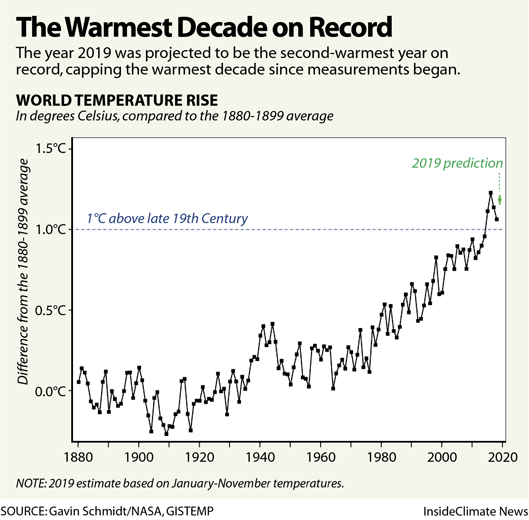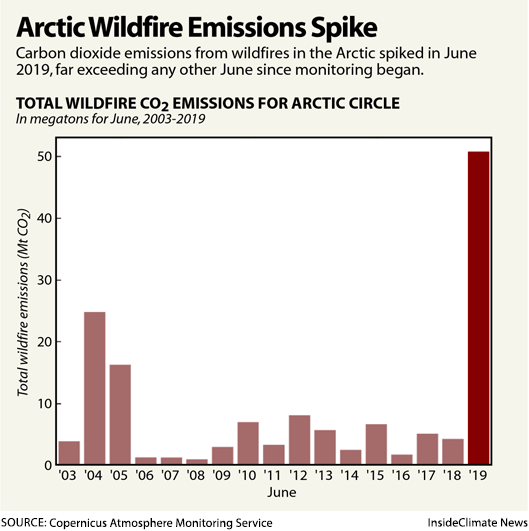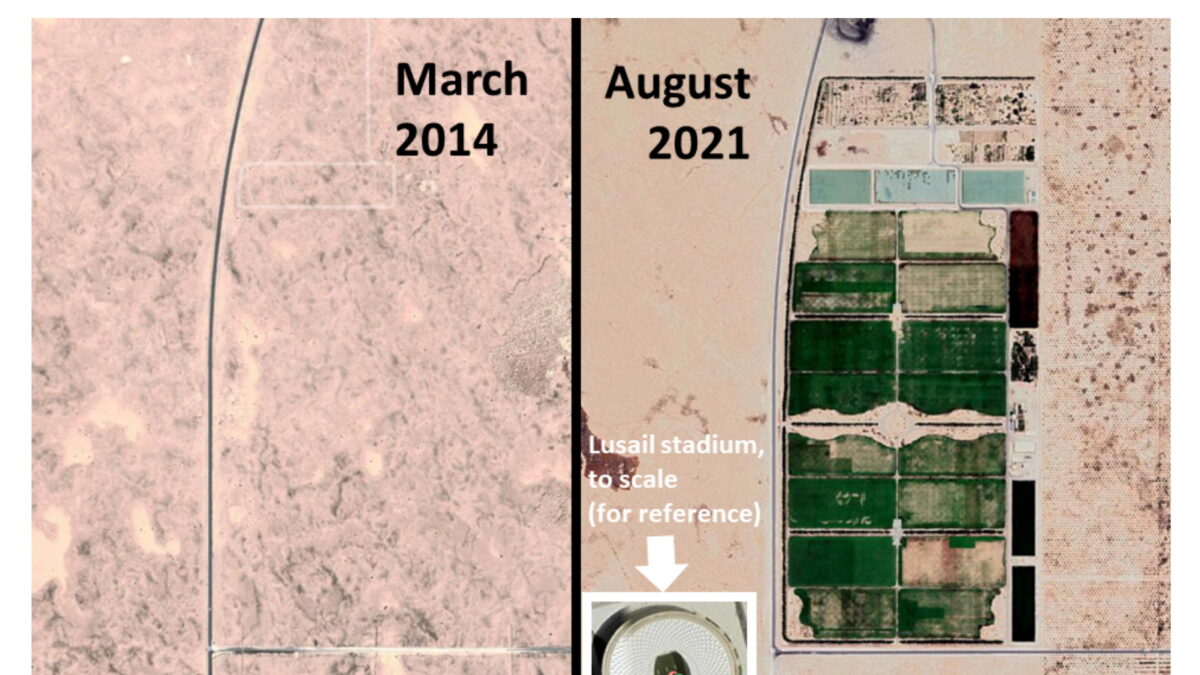2010-2019: Earth’s hottest decade on record marked by extreme storms, deadly wildfires – “The climate of the 20th Century is gone. We’re in a new neighborhood.”

By Bob Berwyn
19 December 2019
(InsideClimate News) – Deadly heat waves, wildfires and widespread flooding punctuated a decade of climate extremes that, by many scientific accounts, show global warming kicking into overdrive.
As the year drew to a close, scientists were confidently saying 2019 was Earth’s second-warmest recorded year on record, capping the warmest decade. Eight of the 10 warmest years since measurements began occurred this decade, and the other two were only a few years earlier.
Arctic sea ice melted faster and took longer to form again in the fall. Big swaths of ocean remained record-warm nearly all year, in some regions spawning horrifically damaging tropical storms that surprised experts with their rapid intensification. Densely populated parts of Europe shattered temperature records amid heat waves blamed for hundreds of deaths, and a huge section of the U.S. breadbasket region was swamped for months by floodwater.
And wildfires burned around the globe, starting unusually early in unexpected places like the UK. They blazed across country-size tracts of Siberia, fueled by record heat, flared up in the Arctic and devastated parts of California. Australia ended the decade with thick smoke and flames menacing Sydney and a record-breaking heat wave that sent the continent’s average temperature over 107 degrees Fahrenheit. Again and again, scientists completed near real-time attribution studies showing how global warming is making extremes—including wildfires—more likely.
Even more worrisome, scientists warned late in the year that many of these extremes are linked and intensify each other, pushing the global climate system ever-closer to tipping points that could lead to the breakdown of ecological systems—already seen in coral reefs and some forests—and potentially trigger runaway warming.

“Every decade or half-decade we go into a new realm of temperature. When you look at the decadal averages, it becomes pretty obvious that the climate of the 20th Century is gone. We’re in a new neighborhood,” said Deke Arndt, chief of the Climate Monitoring Branch at NOAA’s National Centers for Environmental Information.
“When I look at the patterns, the thing that always comes back to me is, we share one atmosphere, one climate system with people we will never meet. When we poke it here in our part of the world it can have mammoth consequences elsewhere,” he said.
The record heat and weather extremes are affecting millions of people worldwide, said Omar Baddour, who helped compile a World Meteorological Organization report showing that more than 10 million people were displaced by climate extremes in just the first half of 2019. In addition to extreme weather, warming can increase the risk of mosquito-borne diseases like malaria, rising sea levels and erosion can make coastal areas uninhabitable, and increasing heat can harm agriculture and water supplies communities rely on.
“It’s really serious. We are getting into a self-sustained loop of global warming that could lead to 3 to 5 degrees Celsius (5.4 to 9°F) of warming by the end of the century,” he said. “We have been recording 2,000 to 3,000 excess deaths from heat waves. This is really becoming a disaster. Humans are suffering.” [more]
Earth’s Hottest Decade on Record Marked by Extreme Storms, Deadly Wildfires


